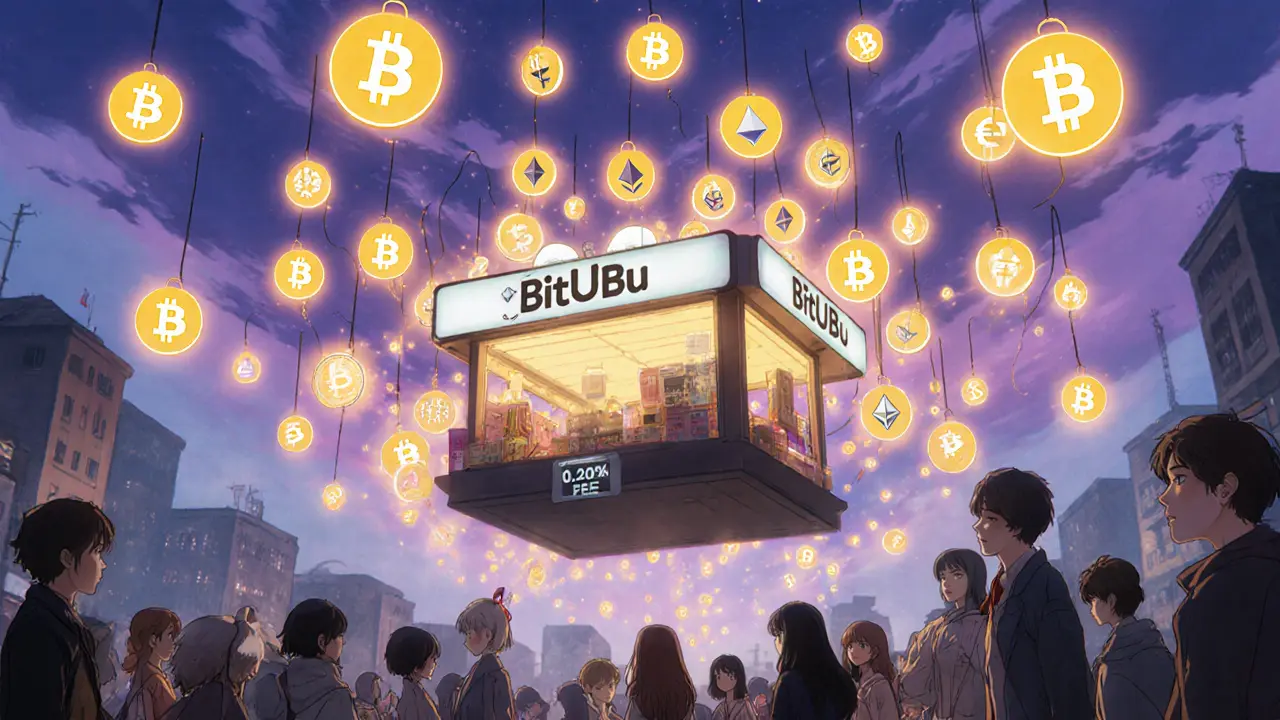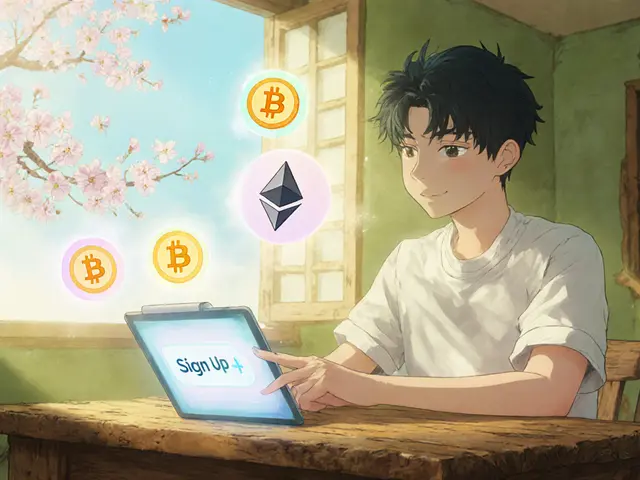BitUBU Exchange Risk Calculator
Use this calculator to determine if BitUBU aligns with your risk tolerance and trading experience. Answer the following questions to get an assessment:
Your Risk Assessment
TL;DR
- BitUBU is an unregulated Turkish exchange offering over 300 tokens with a flat 0.20% fee.
- Transparency is low - no public audits, unclear order‑book depth, and limited user feedback.
- Ideal only for experienced traders comfortable with higher risk; beginners should favor regulated platforms.
When you start hunting for a place to trade BitUBU is a centralized cryptocurrency exchange registered in Turkey that claims to serve more than 100 regions worldwide. The name has popped up on a few coin‑tracking sites, but the real question is whether it lives up to the hype-or if it’s a risky blind spot in your portfolio.
What BitUBU Actually Offers
The platform lists over 300 tokens and roughly 600 trading pairs, covering big names like Bitcoin and Ethereum alongside dozens of lesser‑known coins. Spot trading and a basic derivatives section are the only products you’ll find; there’s no margin trading, futures, staking, or DeFi integrations.
Fees are simple and flat: 0.20% for both maker and taker orders. That puts BitUBU in the mid‑range fee band-more expensive than Binance’s 0.10% tiered model but cheaper than many regional exchanges that charge 0.25‑0.50% per trade.
Funding options include bank transfers and credit/debit card payments, which is fairly standard. However, the platform does not publish detailed limits, processing times, or any verification speed guarantees.
Regulatory Status and Why It Matters
BitUBU operates without a recognized financial licence in any jurisdiction. WikiBit flags it as an unregulated exchange, meaning there’s no supervisory body to enforce capital requirements, audit security practices, or protect users if the business collapses.
In countries like Turkey, the regulatory environment for crypto is already shifting, with occasional bans on certain activities. An unregulated status adds another layer of uncertainty-your funds could be frozen, seized, or lost without any recourse.
On‑boarding: KYC and Account Verification
Signing up is a typical three‑step flow: email registration, password creation, and email verification. After that, you must complete the KYC (Know Your Customer) process, which asks for full name, date of birth, residential address, and a government‑issued ID.
The platform does not disclose how long verification takes or what tiered limits apply after approval. Users have reported waiting anywhere from a few hours to several days on other unregulated exchanges, so expect some delay.
Security: What We Know (and What We Don’t)
Security details are scarce. BitUBU does not publish a third‑party audit report, insurance coverage, or the percentage of assets kept in cold storage-a standard set of disclosures for reputable platforms.
Because the exchange is unregulated, there’s no public guarantee that it follows industry‑best practices such as multi‑signature wallets, hardware‑security‑module (HSM) protection, or regular penetration testing.
In short, the lack of visible security guarantees means you should only allocate funds you can afford to lose.

Customer Support Experience
BitUBU claims 24/7 support via email and live chat, but independent verification is missing. No major review sites (Trustpilot, Reddit, etc.) have enough user testimonials to confirm response times or resolution quality.
Common complaints on smaller, unregulated exchanges include delayed withdrawals, slow ticket handling, and limited language support. While we have no concrete data for BitUBU, the risk profile is similar.
How BitUBU Stacks Up Against the Big Guys
| Feature | BitUBU | Binance | Coinbase |
|---|---|---|---|
| Regulatory status | Unregulated (Turkey) | Licensed in multiple jurisdictions | US‑regulated (NY, CA, etc.) |
| Trading fee (maker/taker) | 0.20% | 0.10% (standard) | 0.50% (no maker discount) |
| Number of tokens | 300+ (600 pairs) | 500+ (thousands of pairs) | 200+ (limited) |
| Advanced features | Spot + basic derivatives | Futures, margin, staking, DeFi | Staking, Earn, NFT marketplace |
| Security disclosures | None public | Third‑party audit, insurance | Insurance, regular audits |
The table makes it clear: BitUBU can attract price‑sensitive traders looking for a flat fee, but it sacrifices the trust, depth, and feature set that larger exchanges provide.
User Sentiment and Community Presence
Social signals are modest. The official Twitter account sits at around 16,000 followers-tiny compared to Binance’s 10+ million. Reddit threads, Trustpilot reviews, and YouTube walkthroughs are almost non‑existent, suggesting low adoption and limited organic buzz.
When a platform lacks an active community, you lose a valuable source of real‑time help, bug reports, and third‑party tools (like trading bots or portfolio trackers) that often rely on community‑driven APIs.
Bottom‑Line Verdict: Who Should Consider BitUBU?
If you’re an experienced trader who:
- Needs quick access to a specific altcoin only listed on BitUBU,
- Can tolerate higher operational risk, and
- Is comfortable handling security yourself (e.g., moving funds to a hardware wallet immediately after buying),
For most users-especially beginners or those prioritizing fund safety-opting for a regulated exchange with transparent audits, proven liquidity, and robust customer support is the safer route.
How to Safely Test the Platform
- Create an account and complete the KYC process.
- Deposit a small amount (e.g., $100) using a card you can afford to lose.
- Place a test trade on a low‑volatility pair like BTC/USDT.
- Withdraw the funds to a personal wallet within 24‑48 hours.
- Evaluate the speed of the withdrawal and the quality of support responses.
If any step feels sluggish or raises red flags, stop using the exchange and move your capital elsewhere.

Frequently Asked Questions
Is BitUBU licensed in any country?
No. BitUBU operates without a registered financial licence, making it an unregulated exchange.
What trading fees does BitUBU charge?
Both maker and taker orders are charged a flat 0.20% fee.
Can I trade futures on BitUBU?
The platform currently offers only basic derivatives; it does not provide full‑fledged futures contracts.
How secure is the exchange?
Security details are not publicly disclosed. There is no third‑party audit, insurance coverage, or cold‑storage percentage available for review.
Is there a mobile app for BitUBU?
Yes, BitUBU provides both Android and iOS apps, but they lack the feature depth of larger competitors.








Write a comment
Your email address will be restricted to us